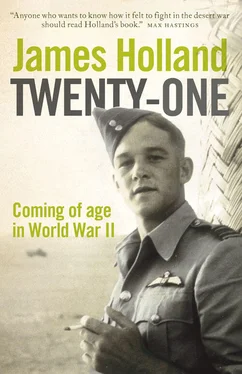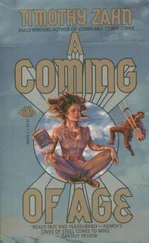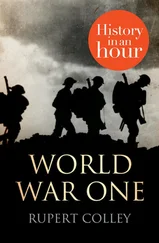The briefing over, the crews collected the rest of their kit – flight suits and Irvins, flak jackets, Mae West lifejackets, as well as chocolate and apple juice, then clambered once more into the blood wagons and set off for their aircraft. It was nearly four o’clock by the time they reached their Halifaxes, and the light was already beginning to fade. Once aboard their aircraft they waited for nearly half an hour. In the cockpit, some twenty-two feet off the ground, Bill went through final checks. It was cold in there, without the heat from the engines to warm it up. It smelled of metal, dust and oil. And it was quiet; there was no more joking, no laughter. The mood amongst all the crew was now serious, their thoughts directed to the job in hand. Christian names and nicknames were replaced with their proper titles: Navigator, Upper-Mid Gunner, Skipper – with communication through the aircraft’s intercom. The minutes seemed to have slowed. As Bill was discovering, this half-hour before they took off was the worst part of the whole trip. He felt scared – of course he did. Anyone who said they weren’t was a liar as far as he was concerned.
At last the signal came and Bill started the four Rolls-Royce engines, licks of flame flicking from the exhaust outlet brightly against the darkening sky. The great aircraft shook and they moved into line, taxiing onto the perimeter track running around the left side of the airfield. Further away, 427 Squadron were lining up on the right. The first Halifax from 429 thundered down the runway at 4.25 p.m., then off went a plane from 427, the two squadrons feeding in turns from their respective sides of the main runway. Bill inched his aircraft forward. George was two ahead. At a quarter-to-five, he watched his brother reach the top of the runway, pause, then accelerate and lumber into the air. Three minutes later, it was his turn. As he taxied round, he saw the usual groups of groundcrew and WAAFs along the edge of the airfield. As Bill pushed open the throttle and felt the Halifax clatter and surge forward he could see them waving and holding their thumbs up in a sign that meant good luck. With both hands, he gently pulled back the control column and felt the Halifax lift from the ground, the perimeter hedge disappearing beneath them. Trees, roads, villages rushed by and then they were in cloud and climbing high into a dark and uncertain sky.
The first time I met Bill Byers was on a warm but blustery day in May 2002 at Croft Racing Circuit in North Yorkshire, England. He was there with a number of veterans and their families for the unveiling of a plaque dedicated to the men of the Royal Canadian Air Force who had flown from there during the war. I noticed Bill because he stood out so obviously from the other veterans. Wearing a baseball jacket and cap, he moved about easily and when he talked it was with a quiet but animated Canadian accent that sounded many years younger than his eighty-two years. Wandering over, I introduced myself and we soon got chatting. He’d only been at Croft a short while during the war. It was not long after his arrival in Britain in the summer of 1943. He and his identical twin brother George had been sent there to convert from twin- to four-engine bombers. After that they’d both joined 429 ‘Bison’ Squadron, RCAF, based down the road at Leeming, flying Halifaxes. He told me about the weather that winter. ‘Boy, it was cold,’ he said. When it wasn’t snowing it was raining. Because they always flew their bombing missions at night, the lack of sunshine started to really get him down. At one point, he realized he’d not seen a hint of sunlight in over two weeks, so with no ops that evening, told his crew they were going for a practice flight and took them high above the clouds. ‘I just needed to see some sunlight,’ he told me. ‘We flew up and down the country, and felt much better after that.’
We were still talking when someone started pointing to a dot in the sky beyond the trees at the end of the circuit. Then we heard the faint thrum of engines and in what seemed like no time at all, the Battle of Britain Memorial Flight’s Lancaster was humming past. After one flypast we began to talk again, but then the Lancaster slowly banked and turned in for another sweep over our heads. Everyone gazed skywards, mesmerized, as it then circled again and came back for a third pass. Once it had disappeared over the horizon, I turned back to Bill who introduced me to his wife, Lil. They’d met during the war. She had been a young girl from nearby Northallerton, and when Bill finished his combat tour they’d got married and after the war she’d journeyed with him back to his native Vancouver.
‘We’ve made the trip back to England about twenty times since the war,’ Bill grinned. ‘I love it here. And you see, my mother was English too. She met my dad during the First World War, so I’ve always felt attached to the place.’
We met again some eighteen months later at their home in Redwood City, a few miles south of San Francisco in California. It was a couple of weeks before Christmas, but in Carmel Drive it was warm and, for the most part, sunny. They’d moved there over forty years ago – his job with the Post Office had been ‘boring as anything,’ and his cousin, Hal, had always wanted him to come on down to California. So finally that’s what they did, with Bill buying into Hal’s masonry business in November 1959. It turned out to be a good move. ‘We did reasonably well,’ Bill told me, ‘and we’re secure financially. We’ve been able to do what we wanted to.’
He suddenly leant forward, his fingers together. There was still a lot of energy there; he never seemed to sit still for long. ‘But you want to hear about the war,’ he said. ‘What do you want to know?’
Let’s go back to the beginning, I suggested. I was interested to know about his background, about what shaped him, and what led him to fly bombers from an icy airfield in northern England.
There were no other brothers or sisters, just Bill and George. ‘My mother’s first husband was killed during the First World War,’ said Bill. ‘Then she met my dad and followed him back to Canada. Then my brother and I were born.’ His dad was in lumber mills, for most of the time working around Vancouver, although when the twins were six, they moved to Burbank in southern California for a few years before returning to Canada. Their childhood was, he admitted, pretty happy. He and his brother did most things together and although they had occasional spats, were very close most of the time. ‘Our thoughts were often identical,’ said Bill. ‘Whether it was some kind of telepathy I don’t know, but if we thought about some problem, we’d be sitting there looking at each other and both get the same idea at the same time. That would happen loads of times.’ Neither was particularly keen on class work and they took far greater interest in woodwork and the more practical subjects. ‘I hated Shakespeare until I got to England,’ said Bill. ‘Now I think he’s the greatest.’ They left school and both went straight into a course in aeronautics, part of the Dominion Provincial Youth Training Scheme. They’d been there about six months when war broke out. The RCAF was soon recruiting hard and both Bill and George were accepted, although as groundcrew rather than pilots. Their training took them to bases all around the country, but they were at Saskatchewan when they turned twenty-one. ‘It wasn’t a big deal at all,’ said Bill. ‘In wartime they don’t give you a day off for your birthday.’
Shortly after, George heard that he was to be posted to another air base in Manitoba. When Bill discovered this, he wanted to be posted with him. Luckily for them there was a new warrant officer at Saskatoon who knew there was a section in the King’s Rules that said brothers could stay together if they so desired. ‘From then on,’ said Bill, ‘we pretty much stayed together all the way through.’
Читать дальше












